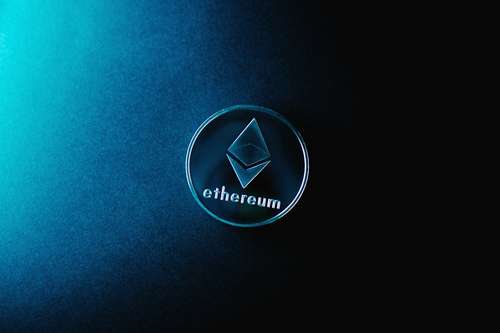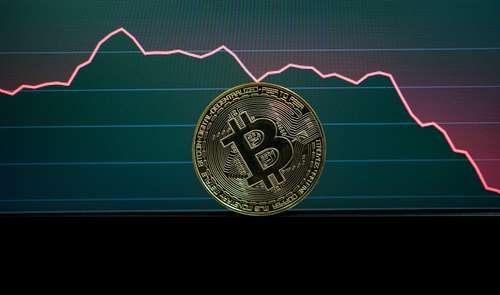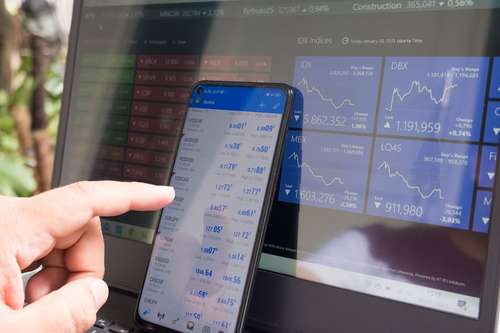In recent years, we’ve witnessed an impressive merger of tokenization and Islamic finance in Asia, signaling a true breakthrough in global financial infrastructure. This isn’t just a fleeting trend – it’s an evolving transformation that's turning heads across financial sectors worldwide. The innovative drive in regions like Indonesia and Malaysia is rebirthing financial ecosystems, sparking a wave of innovation that’s both significant and thought-provoking.
If you’ve ever wondered how traditional banking can meet the digital age, this revolution provides some fascinating answers. It’s as though Asia is orchestrating an entirely new symphony in global finance, integrating cutting-edge technology with long-established financial ethics. With blockchain and digital assets leading the charge, the landscape is rapidly being redrafted to empower users everywhere.
Embracing Tokenization and Digital Transformation
Asia is at the forefront of a rapid digital transformation. This section delves into how tokenization is changing the face of finance in the region. The thrust into digital assets isn’t just about trading cryptocurrencies—it’s about reshaping traditional financial interactions with modern technology, creating unparalleled opportunities for innovation and growth.
The process of tokenization can be compared to rewriting the financial playbook. With tokenization, traditional assets become digital tokens, greatly increasing their liquidity and accessibility. This nimble blend of technology and finance not only enhances transparency but also reduces many of the frictions that once bogged down transactions. You might think of it as moving from a clunky old typewriter to a sleek, futuristic computer that is responsive and efficient.
Many in the fintech industry are excited about these digital innovations. In Asia, digital assets are making investments more inclusive, secure, and accessible to a broader range of users. As blockchain and other decentralized finance technologies evolve, so too does the potential for a massive shift in how we perceive and interact with our financial systems.
The Rise of Islamic Finance in Asia
Islamic finance has long been associated with principles of ethical investing and risk-sharing, and now these concepts are experiencing a new lease on life thanks to digital transformation in finance. In Asia, countries are increasingly leveraging Islamic banking models to meet modern investment needs. Here, the adherence to Sharia-compliant finance provides not only ethical clarity but also a unique selling point in the bustling fintech community.
This resurgence of Islamic finance in Asia is especially exciting. For many, it serves as an enlightening bridge between traditional values and cutting-edge financial technology. When you look at real-world examples like the growing popularity of Sharia-compliant financial products in Malaysia, it’s clear that transparency and ethical investment are more than just buzzwords—they’re a beacon for financial inclusion and growth.
Platforms integrating tokenization with Islamic finance demonstrate how fintech trends can harmonize with established cultural and religious norms. The convergence of these two realms offers investors both innovation and the assurance of adherence to ethical guidelines, creating a win-win scenario that resonates with global audiences.
Innovative Regulatory Advances in Asia
Asian financial markets are increasingly receiving global attention for their progressive regulatory approaches. The region has been actively refining its regulatory framework to foster financial innovation, ensuring that technologies such as blockchain and cryptocurrency are safely integrated into existing infrastructures. This adaptive regulatory stance is crucial for nurturing trust and opening the door to global financial participation.
Regulation in Asia isn’t about stifling innovation—it’s about creating an environment in which new ideas can thrive while minimizing risk. Regulators in Indonesia and Malaysia, for instance, have been proactive in crafting guidelines that directly address the complexities and risks of tokenization and decentralized finance. This careful balancing act assures investors and institutions alike that their interests are protected, fostering a sense of security in a rapidly evolving market.
Some might say that Asian regulators are playing a pioneering role—almost like the pilots of a technological jet. They are guiding their states through turbulent skies towards a landscape where digital transformation meets traditional financial values. The impact of these reforms is already being felt in global discussions about financial inclusion and modernization.
Global Impact: Reshaping Financial Infrastructure
This section examines how the amalgamation of tokenization with Islamic finance in Asia is setting the stage for redefining global financial infrastructure. Innovations emerging here aren’t isolated; they have vast implications that affect established financial systems worldwide. One can easily see parallels between the revolutionary ideas in Asian fintech and worldwide trends towards decentralization.
The combination of blockchain innovations and Islamic banking practices is prompting broader conversations about the future of finance. This integration is not merely for show—it’s creating robust models that are poised to influence the way global financial infrastructure operates. Financial technology and Islamic investment are slowly steering a course that traditional systems might soon have to mimic or adapt to.
This emerging trend is a reminder that change is often not linear. Instead, it unfolds in layers, each building upon the previous one. Here in Asia, we see a clever interplay between adherence to established values and the fervor for groundbreaking fintech. As digital assets and decentralized finance continue to grow, Asian nations are uniquely positioned to lead a movement where financial empowerment and ethical considerations go hand in hand.
The ripple effect extends to investors worldwide who are beginning to appreciate the benefits of a system that combines security, transparency, and deep-rooted ethical frameworks. It raises a pivotal question: Could this be the blueprint for the future of global financial infrastructure? With these trends shaping policy and market dynamics, the answer might very well be yes!
Conclusion
In conclusion, the synergy between tokenization and Islamic finance is radically reshaping how we view global financial infrastructure. Asia, with its dynamic regulatory frameworks and innovative financial practices, is positioning itself as a leader in driving change across the sector. This fusion offers not only increased security and efficiency through digital transformation but also reaffirms the importance of ethical investment practices embedded within Islamic finance.
By leveraging blockchain, digital assets, and decentralized finance, countries like Indonesia and Malaysia are not just part of the fintech revolution—they’re spearheading a global shift towards more inclusive and secure financial systems. Whether you’re an investor or simply someone fascinated by fintech trends, it’s clear that the wave of change is here, promising an exciting future for global financial innovation!




